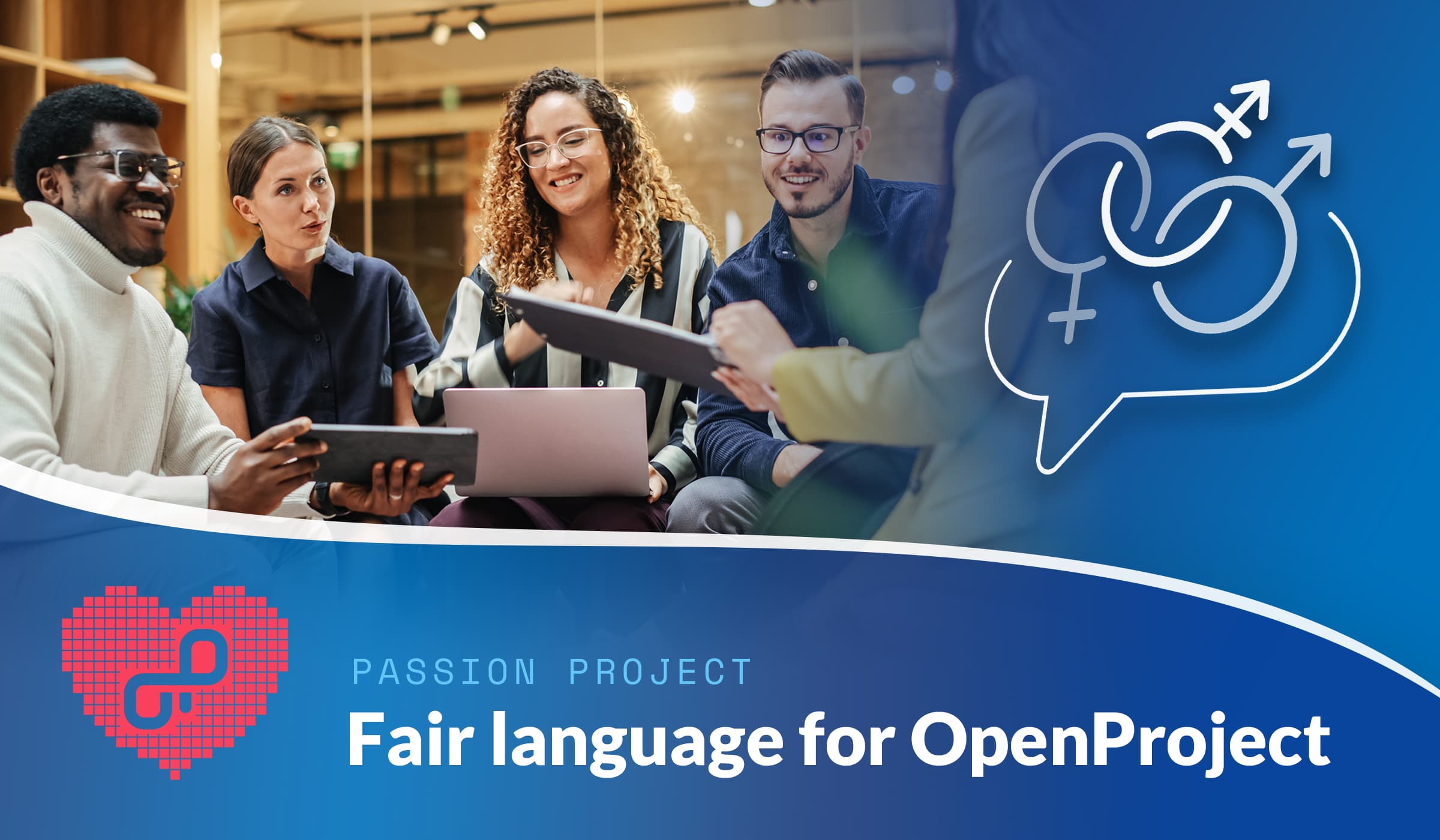
Passion project: Fair language for OpenProject
Language is a powerful tool that influences our thoughts, beliefs and actions. Our words have the ability to change how we perceive the world around us. However, not all language is equal or fair. Fair language, that is, language that is free of bias and stereotypes, is incredibly important in creating a more just and equitable society where everyone feels included.
Fair language as a passion project
The awareness of using fair language has always been important for OpenProject. However, like most things when it comes to deadlines, task juggling, and other important matters, this issue has not received the attention it deserves. That’s about to change now during our Passion Time in Switzerland.
Passion project: Make OpenProject’s language more inclusive and fair.
Why: Make our communications more diverse and inclusive.
How: Give an impulse to pay even more attention to the use of fair language across all our communication channels.
What: Review, implement and document the use of fair language on OpenProject’s website and in the documentation.
A team has come together to review, improve, and document the use of fair language on the OpenProject website and in documentation. This will involve analyzing various websites and guidelines on how best to implement fair language.
Why fair language is important for us
It is important to use inclusive language in English. However, this is even more important for German translations, as the German language has a complex grammatical structure with formal and informal forms of address. The German language is traditionally structured in a binary gender system in which masculine and feminine forms are used to address individuals and groups. This system perpetuates gender stereotypes and can exclude or marginalize individuals. In the past, the masculine version of words was mostly used.
This is now changing, making fair language an even more important part of daily life. One aspect of fair language is that it aims to be more inclusive and respectful by avoiding assumptions about a person’s gender.
The use of fair language is an evolving process, and there are ongoing debates and discussions about how best to implement it in German. However, the overall goal is to create more inclusive and respectful language that reflects the diversity of people and communities.
What we have done
We are analyzing all text on our website and documentation and scanning it for gender specific wording, especially in the German version. We aim to find gender neutral words whenever possible, for example “Mitarbeitende” instead of “Mitarbeiter (male version)”. Where this is not possible, we decided to use the “:” to include the different forms, for example “Benutzer:innen”. This would then include male as well as female users of the application. We are aware that some wording still does not include all people, such as non-binary people.
What’s next
This is certainly only the first (and a very small) step for us towards a more just world. With this project, we would like to give an impulse to pay even more attention to the use of fair language in our communication across our channels. This will also cover our support, trainings and the training material, emails, chat, and any other forms of communication.


